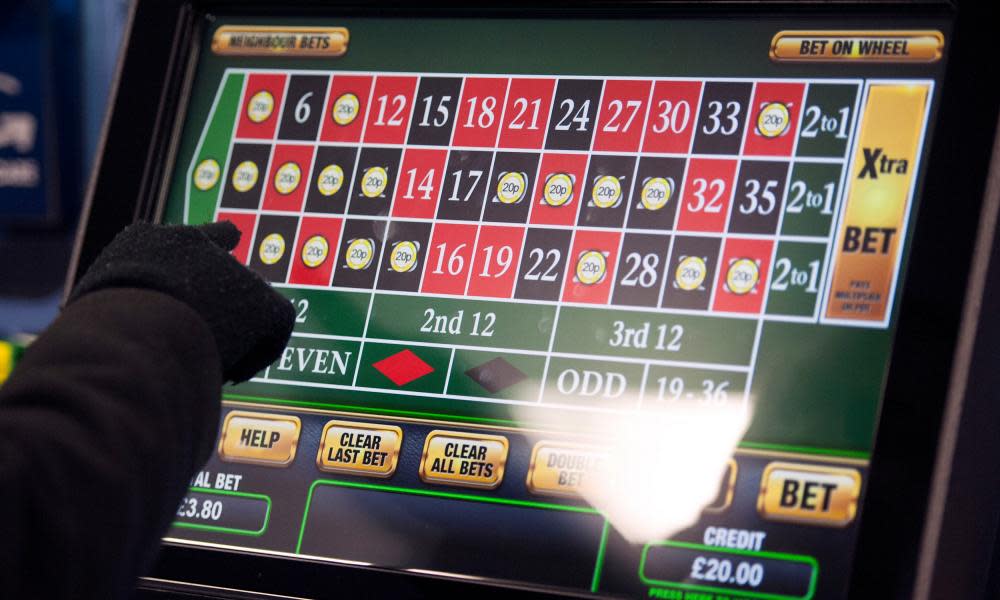Gambling: ministers urged to be bold with curbs on FOBTs

Campaigners have urged the government to be bold in its response to the problem of fixed-odds betting terminals (FOBTs) amid reports that a consultation on the issue will this week recommend slashing the maximum single bet from £100 to £2.
The review, ordered by the Department for Digital, Culture, Media and Sport (DCMS) in October, is due to report on Tuesday. It will examine what reduced maximum stake should be imposed, with a stated range of between £50 and £2.
While some bookmakers have said a £2 maximum could cause shops to close, campaigners have called for this amount to limit the losses from a highly addictive form of gambling in which 233,000 FOBT users each lost more than £1,000 in one sitting in 2016.
The review was launched by Karen Bradley, but she became Northern Ireland secretary in this month’s reshuffle, with Matt Hancock, one of her junior ministers, promoted to replace her as culture secretary.
Some anti-FOBT campaigners had feared this could see a less robust attitude taken towards gambling. Hancock’s West Suffolk constituency includes Newmarket racecourse, where he raced as an amateur jockey, and he has previously voted against tighter regulation.
The Sunday Times said Hancock had now been persuaded by an “overwhelming” response to the consultation in favour of a £2 limit, with an unnamed ally of the minister saying he felt the machines took money from more mainstream betting.
However, a source in Hancock’s department said no final decision had yet been taken.
Carolyn Harris, the Swansea East Labour MP who leads an all-party group on the issue and has long campaigned for tougher limits, said she welcomed the signals that the government “looks set to finally see sense” on the issue.
“A reduction in the stake to £2 would not just be a victory for common sense. It would be a victory for the thousands of people whose lives are blighted daily by these toxic machines,” she said.
Harris has put together a cross-party letter to Theresa May to coincide with the end of the consultation, signed by her and other MPs from Labour, the Conservatives, SNP and DUP, as well as peers, the bishop of St Albans and experts and academics.
The letter to be copied to Hancock and the chancellor, Philip Hammond, calls for the £2 limit and casts doubt on the reliability of data in a report sponsored by the Association of British Bookmakers detailing the supposed impact of a low limit on the industry.
The letter says: “This government has stated its commitment to social justice. These machines are creating social injustice. They are having a direct impact on people and families across the country. They are harming the young and vulnerable in our society, whom we have a duty to protect.”
John White, the chief executive of Bacta, the trade association for the amusement and gaming machine industry – which opposes FOBT machines – said he did not know whether a final decision had been taken.
He said: “But it is hard to see on any objective assessment of the evidence that the government could reach any other conclusion than dropping the stake to £2 is the right decision. I have struggled to find any politician that doesn’t think that this reduction in stake on FOBTs is warranted.”
A DCMS spokeswoman said: “We are clear that FOBT stakes will be cut to ensure we have a safe and sustainable industry where vulnerable people and children are protected. We are currently consulting on what the exact cut should be, and will make a final decision in due course once all the evidence has been considered.”

 Yahoo News
Yahoo News 
